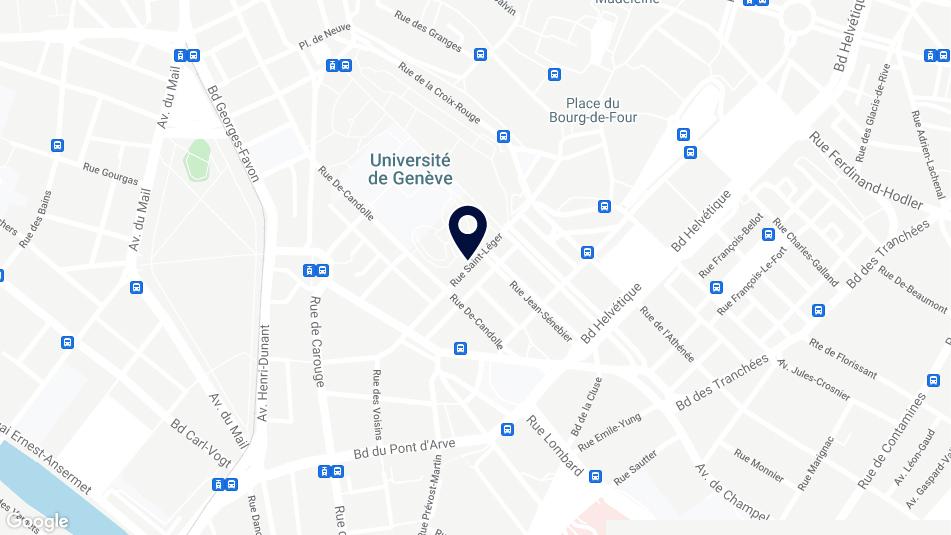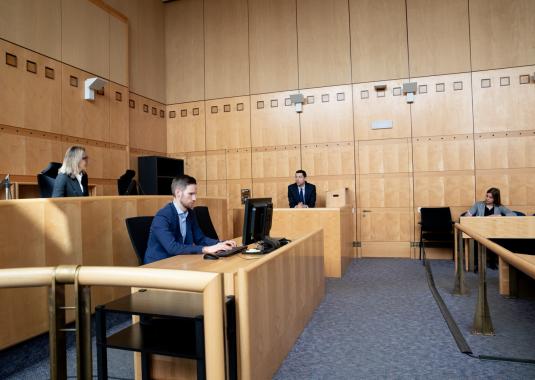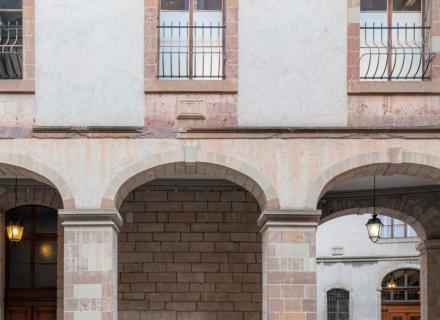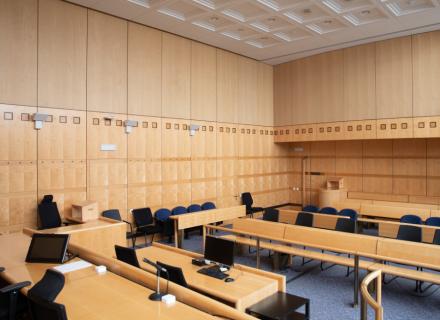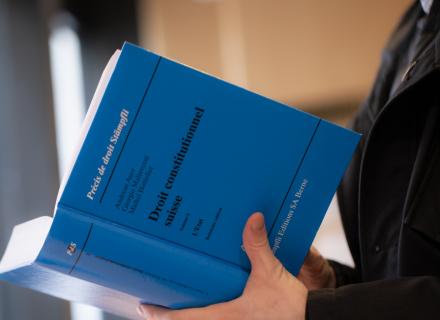Contacts
Address
Contact details
Desk - telephone
Opening hours
8h-12h / 13h30-16h
Office
Chancellery
Mailing address
Chambre administrative
Case postale 1956
1211 Genève 1
Competences
The Chambre administrative rules in first instance on appeals against administrative decisions of the State and in second instance on appeals against decisions of the Tribunal administratif de première instance.
In first instance
In particular, it deals with appeals in the following fields:
- Public procurement (e.g. in the case of bid challenges, exclusion or acceptance of a bid)
- Spatial planning (e.g. in matters of classification of buildings or localized plans for residential areas)
- Civil service (in the context of disputes arising from public law employment relationships, such as appeals by civil servants against blame or termination)
- Regulated professions (e.g. sanctions against lawyers or doctors)
- School and university law (e.g. refusal to repeat a year or elimination from a faculty)
- Naturalization (e.g. refusal of naturalization or suspension of the proceeding)
- Animals (e.g. temporary or permanent confiscation of animals)
- Operation of public enterprises and establishments (e.g. refusal or lapse of an operating license, administrative fines for non-compliance with legislation)
- Social assistance (e.g. restitution of financial assistance benefits unduly received)
- Assistance to victims of crime (e.g. compensation for pain and suffering or other benefits to victims of crime)
- Prison (e.g. disciplinary sanctions in custody)
- And many other areas, such as navigation, public domain, housing, cabs, etc.
In second instance
As an appeal authority against the decisions of the Tribunal administratif de première instance, the Chambre administrative rules in particular in the following fields:
- Fiscal law (direct federal tax, cantonal and municipal taxes, registration fees, municipal business tax)
- Law on foreign nationals (e.g. residence permits and administrative detention)
- Building and environmental law (e.g. building and demolition permits, fines for littering, fines for tree felling)
- Road traffic law (e.g. forfeiture of a driving licence)
- Procedure to remove people in the context of domestic violence (e.g. objections to removal orders and requests for their extension)
- Expropriation in the public interest by the state or the municipality (assessment and compensation in the event of expropriation)
Organization
A collective and multidisciplinary jurisdiction
The Administrative Chamber is composed of 7 permanent judges, including a president and a vice-president. The judges work in close collaboration with jurists and, for the administrative follow-up of the proceedings and the record of the hearings, with a clerk.
The Administrative Chamber sits in Divisions (3 judges) or plenary sessions (5 judges), depending on the cases handled.
The Administrative Chamber does not provide legal advice.
Proceeding
Your steps in brief
An appeal proceeding to the Chambre administrative involves several steps:
Step 1: bring an action before the Chambre administrative
You must submit your appeal in writing, in two copies, to the Chambre administrative by mail or by depositing it directly at the chamber's desk or at the Greffe universel. It must be written in French and signed.
Your request must imperatively:
- Include a copy of the administrative decision or judgment to which you are objecting
- Specify the facts and arguments justifying your appeal
- Indicate what you want to obtain
- Include all the useful documents justifying your appeal
Step 2: pay an advance on costs
At the initiation of the appeal, you must in principle pay an advance on costs, the amount of which varies according to the nature of your dispute.
If your resources are insufficient to ensure the defence of your interests in court, you can request legal aid.
Step 3: conduct of the proceedings
The conduct of the proceedings is based mainly on an exchange of written submissions.
Unless the appeal is inadmissible or manifestly unfounded, the delegated judge will ask the authority that issued the decision to respond to the arguments presented in your notice of appeal.
If necessary, the Chamber may have to collect additional elements in order to rule on the dispute (e.g. hearing of the parties/witnesses, on-site visit, request for new documents or information from third parties).
Step 4: end of the proceedings
At the end of the proceedings, the Court renders its decision (judgment), which is sent to you by registered mail.
Questions/answers
Parties whose examination has been ordered must appear in person; legal entities must appoint a representative.
Even when the examination has not been ordered, it is advisable to attend hearings held before the Chambre des assurances sociales de la Cour de justice in person.
Witnesses are required to appear personally.
If your resources are insufficient to defend your interests in court, you may, under certain conditions, be eligible for legal aid. This financial aid is not free of charge.
It consists mainly of partial or total payment of lawyers' fees and legal costs for people who do not have the necessary means to pay them. You will have to reimburse it as soon as you are able to do so.
For more information, consult the thematic guide Legal aid
